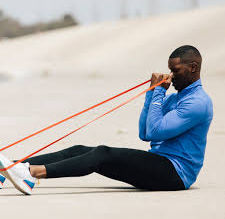Tips to Deal with Jet Lag
- Marvin Johnson
- Mar 31
- 2 min read

As an athlete, travel plays a crucial role in your journey. Competing often requires extensive travel, whether you are a youth competitor or an elite athlete. Depending on your level of achievement, you may find yourself traveling locally, across your province or state, or even nationwide. Additionally, there are exciting opportunities that allow you to compete internationally.
While traveling overseas can be exhilarating and offers a chance to enhance your skills, it also comes with the risk of jet lag, depending on your destination.
Jet lag is characterized by fatigue after a long flight that crosses multiple time zones. It can lead to daytime drowsiness, a feeling of unwellness, and difficulty staying alert and responsive.

Although jet lag poses a real challenge for athletes, there are strategies to minimize its effects and maintain your performance:
Pre-Travel Preparation
Adjust your sleep schedule a few days before your departure. Shift your bedtimes and wake-up times to align with your destination's time zone.
Hydration
Air travel can dehydrate you, and dehydration worsens jet lag. It’s important to drink plenty of water before, during, and after your flight. Avoid alcohol and caffeinated drinks.
Light Exposure
Exposure to sunlight is your best ally for resetting your internal clock. If you arrive in the morning, go outside and soak up some natural light to help you stay alert.
Meal Timing
Eat meals according to your destination's clock, even if you are not hungry. Consume light, protein-rich meals during the day to keep your energy up, and eat carbohydrates at night to help you relax.
Move Around
Sitting for hours on a plane can cause stiffness and fatigue. Stretch, walk the aisle, or do light exercises during your flight. Once you arrive at your destination, do a light workout to help shake off fatigue and reset your rhythm.
Post-Arrival Routine
Stick to a consistent sleep schedule once you land. Resist the urge to take a long nap in the middle of the day unless it is a short power nap, and adapt to the local time as quickly as possible.
Jet lag can impact your mental focus, so consider using breathing techniques or exercises to stay sharp.
Every athlete is different, so it's important to experiment and find what works best for your body in reducing jet lag.



















Comments